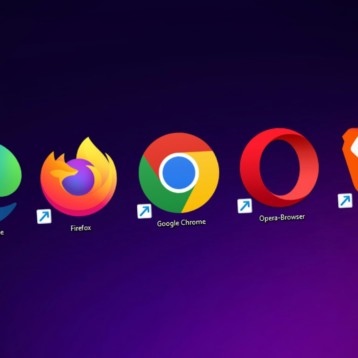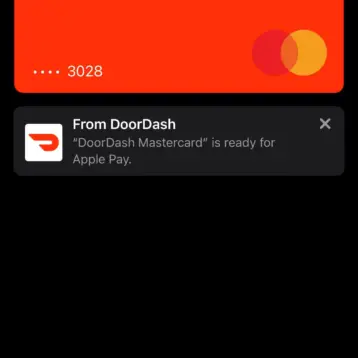
It’s not enough to just join a Facebook group or any other popular social media site in order to target specific audiences for your products or services. You need to dig deeper with your messaging and that means keyword research and optimization which, on a very basic level, is a fancy way of saying you need to utilize terms, phrases, hashtags, and words that represent your particular brand and that corresponds to what potential buyers are searching for when they go online. Make sense?
According to EWR Digital Enterprise SEO, “For many beginners, and even relatively experienced non-beginners, the gray area between posting social media and utilizing search engine optimization can be confusing. If you’re trying to build a brand and sell products using your social media following (and it helps to have a large following on Facebook, Twitter, and Instagram), what you have to ask yourself is this: What can you do to optimize your social media searches and posts so that your brand and your products show up to new potential buyers?”
In the old days, when people wanted a solution to a problem, they typically used Google to come up with the answer. At the same time, they used social media more as a platform for posting random photos of their latest meal or vacation destination. Facebook or Instagram, for instance, weren’t necessarily considered a tool for search engine optimization.
But all that’s changed now that SEO consultants and professional digital marketing operations are working with everyone from publishers to fashion retailers to help them tap into social media sites for their SEO keyword research and branding potential. Even more, there are plenty of social media tools to streamline your strategy. That said, here are some effective ways for you to use social media for keyword SEO research.
Facebook Ads
If you’re willing to spend a few bucks, you can take advantage of Facebook ads that will allow you to hone in on your specific social media audience (Amazon authors trying to move their books do this very same thing with Amazon ads). Facebook advertising targeting can get as specific as you want. For example, you can optimize your ad campaign to include your audience’s age, interests, gender, where they reside globally, their language, their taste in entertainment (books, movies, music, etc.) and even their relationship status.
What this means is, by using Facebook ads (and Amazon, Instagram, and YouTube ads), you can pinpoint not only your existing audience but also potential audiences. Your ad messaging must speak to the potential buyer in a way that will make their lives easier and/or better.
Perhaps someone on Facebook is bored and already binge-watched all their favorite programs on Netflix. They might not realize it yet, but what they’re looking for is a new and different experience to pass the time. But then they see a Facebook ad for a new book. The messaging in the ad will solve the user’s problem. They will click on the ad and tell themselves, “Instead of searching for a new Netflix series this weekend, I’ll read a great thriller by a new author.”
One caveat. Advertising on Facebook or any other social media for that matter, can be expensive. There will be periods of trial and error where you will see your bank balance dwindling every time a potential customer clicks on your ad (you only pay for clicks, not views). You only make money when they click on the ad and then buy, and this can take time and money. It also can take some serious tweaking of your ad messaging before your ads are making you a profit.
Twitter Trends
Twitter is considered a news source by many of its users. But if you take a careful look at the conversations which are directly related to the news topics, you can jump on the specific details that are of particular interest to your audience. You can even cut and paste their exact language in your own messaging and/or retweet their message. What you’re looking to do is engage with your audience and potential audience.
You should also learn to use effective hash-tagging to further optimize your Twitter presence. For instance, just recently Elon Musk of Tesla and Space X fame, recently used a single hashtag, #Bitcoin, that not only sent the Twitter crypto audience into a frenzy, it actually made the price of the popular crypto currency skyrocket. Ironically, Musk’s use of a Twitter hashtag became one of the top ten Twitter trends further building not only Musk’s brand but also cryptocurrency’s branding. In other words, the news didn’t create the Twitter hashtag, but the Twitter hashtag created the news.
Instagram Hashtags
Instagram has become a terrific place to promote your brand via keyword SEO since it utilizes not only stunning photos and interesting video to get your message across, it also uses keyword hashtags to great effectiveness. In a word (or three), Instagram is said to be its own “hashtag search engine.” You can follow hashtags that you find of particular interest or create hashtags that will drive your audience to your brand or your specific need.
For instance, if you’re on the hunt for an SEO marketing professional who specializes in fitness products, you might post a photo of someone working out, and utilize as one of your hashtags, #SEOmarketingcrossfit or something similar. In the same vein, if you’re trying to promote a series of workout videos you’ve produced for YouTube, you might want to post a snippet of a training video along with the hashtag #strengthtraining or #instastrengthtraining. In this way, the hashtag becomes its own optimized keyword.
Cross Channel Utilization
Social media channels are great for creating ads and posts that optimize your brand. But where does this fit in with your official website? Or even your GoogleAd campaigns? It’s possible to rely on SEO keyword tools and software that will do the keyword research for you to attract more viewers to both your website and the ads, but you need to go a step further if you wish to convert an optimum amount of potential buyers.
One effective way is to use the same language that visitors will include in positive reviews and also in their social media posts when writing specifically about their experience with the brand in question. When this “cross-channel utilization” of targeted keywords that appear on Facebook, Twitter, and Instagram is applied to your main website’s content pages, blog posts, and advertising copy, it can create a cross-pollination that increases views, clicks, and purchases. More importantly, it will increase your loyal audience.







![10 Top Game Sites Not Blocked By School [2024 Updated]](https://thefutureofthings.com/wp-content/uploads/2024/10/image-25-358x358.png)


